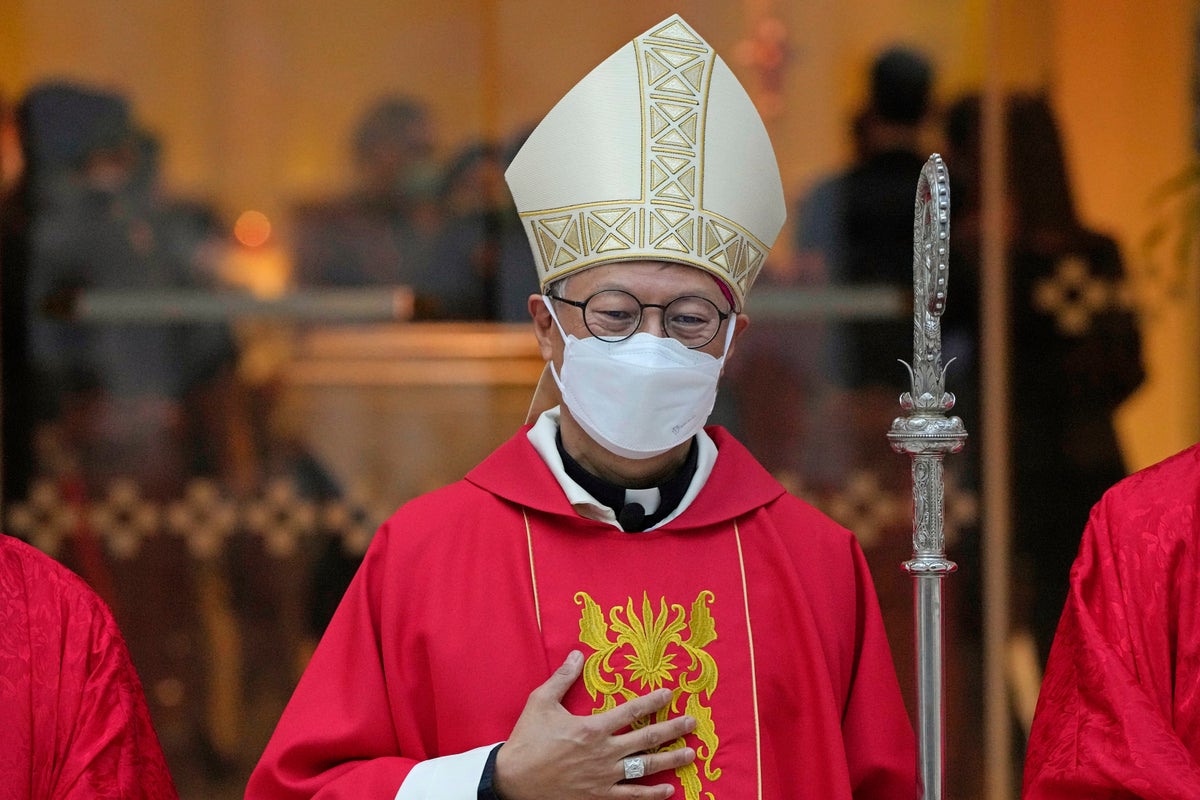
Hong Kong's Roman Catholic bishop arrived in Beijing on Monday, marking the first visit to the Chinese capital by the city's bishop in nearly three decades, despite signs of Sino-Vatican strains.
The five-day trip by Bishop Stephen Chow began about two weeks after Vatican News, the news portal of the Holy See, reported that China had unilaterally appointed a new bishop to Shanghai.
Chow, who was named by Pope Francis as the city's bishop in 2021, earlier said that the visit underscores the mission of the Hong Kong Diocese to be a bridge church and promote exchanges between the two sides. He was invited to visit the Chinese capital by his counterpart there.
China’s ruling Communist Party closely controls organized religion, which it sees as a potential threat to its monopoly on power. People are allowed to worship in institutions that abide by party rules. Some Christians have set up underground churches, which are considered illegal and harassed by authorities.
In 2018, the Vatican and China signed a “provisional agreement ” over the appointment of bishops, a breakthrough on an issue that stymied diplomatic relations for decades and aggravated a split among Chinese Catholics.
The agreement on Catholic bishops has been renewed twice, most recently for two more years last October. A month later, a feud broke out over the installation of an auxiliary bishop in Jiangxi province, which the Vatican does not recognize as a diocese.
The deal was also harshly criticized by Hong Kong Cardinal Joseph Zen.
The Hong Kong Diocese did not reveal Chow's itinerary when announcing his trip in March. But it said in a statement that it accepted the invitation from Beijing's diocese in the spirit of brotherhood.
Kung Kao Po, a publication affiliated with the Hong Kong Diocese, reported that Chow would meet with his counterpart, Joseph Li, visit the National Seminary of Catholic Church in China and host a thanksgiving Mass at the Xuanwumen Catholic Church.
He would also visit the tomb of Matteo Ricci, one of the first Jesuits to live in China who died in Beijing in 1610, and other organizations that facilitated cultural exchanges, the report added.







